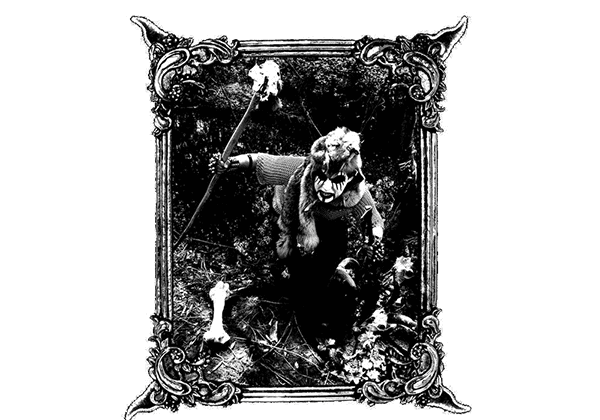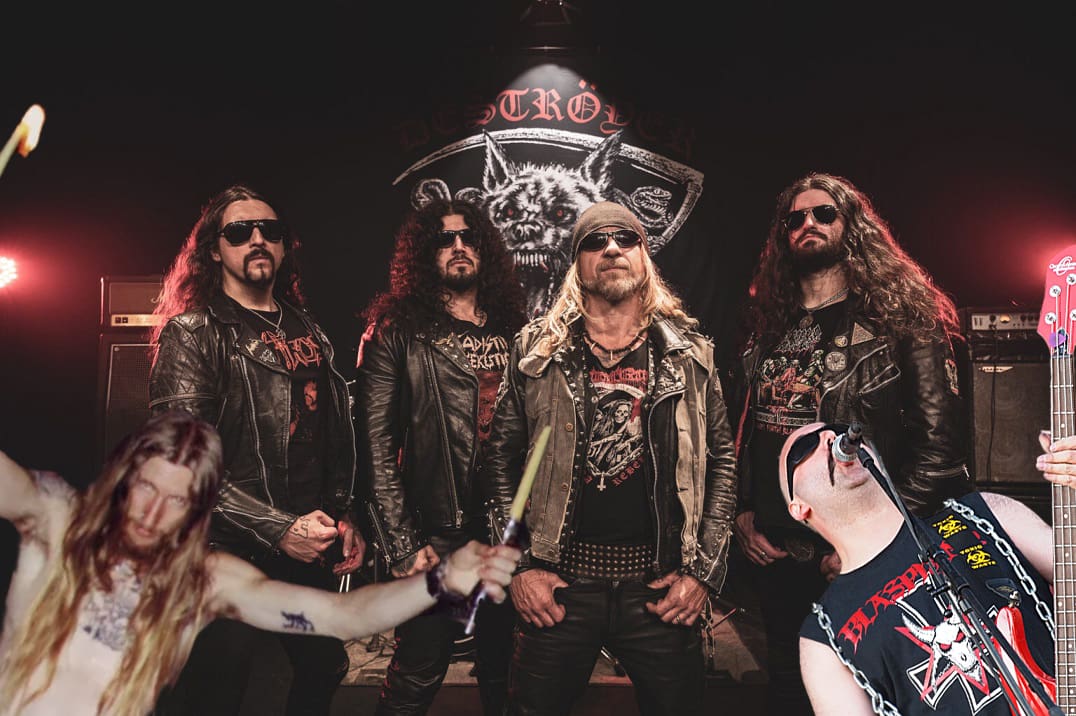In 1997, Virginian black metal act Grand Belial’s Key released their debut LP Mocking the Philanthropist. It was met with widespread controversy and boycotts; Rough Trade Records Germany refused all distribution of the album, the band played only nine gigs in its first nine years and their label, Wood-Nymph, collapsed after poor record sales. Irrespective of the reactionary content of the album itself, controversy stemmed predominantly from the CD booklet which featured band members wearing the merch of prominent National Socialist Black Metal (NSBM) acts. One of these acts was Spear of Longinus, who formed in 1992 in Brisbane, Queensland.
Fascism, in a legislative sense, never did take root in Australia – its self-contradictory nature and endlessly vacillating convictions struggle to appeal to populations without a more conventional ancestral-national chauvinism and predisposition to outward displays of military might. But fascism was always, above all else, a political aesthetic; subscription to the ideology itself or relevance in Parliament is not necessarily reflective of sympathy towards its particular end goals. Australia has long embraced a watered down fascist imagery of soft white nationalism, subtly scapegoating minority populations and celebrating jingoistic approaches to foreign countries such as China. This is all to say, the way people talk about fascism within music is wrong (at least in Australia). People tend to imagine scenes straight out of Green Room in which nazis come together in dirty, recondite locations and perform their music for each other in very insular, gatekeeping scenes; sort of a burgeoning underground Fourth Reich. This is not the case in Australia and only ever tends to manifest in countries where fascism is prevalent and not ostensibly untenable, such as with early 2000s Ukranian Black Metal or Polish Black Metal over the last decade. In these cases, political facism isn’t underground, and nor are its musical manifestations.
Most likely the first Australian white supremacist band was Quick & The Dead, who formed in Perth in 1978. They were tied to the Rock Against Communism (RAC) scene abroad. Other acts such as White Lightning, White Noise and Fortress followed suit. They played hard rock and Oi! and were all essentially defunct by 2000, alongside RAC at large. Searching for bands with explicit ties to white supremacist organisations or ideologies wields very few results. In terms of artists that have been operating this century, the most notorious are Deströyer 666 and Spear of Longinus, but there are smaller acts such as Denouncement Pyre, Vomitor, Lustration and Abyssic Hate. These acts largely play black and thrash metal and have members that have expressed fascist sentiments in the past. For example, Abyssic Hate’s first demo is titled ‘Cleansing of an Ancient Race’ and features a Reichsadler on its cover. K K Warslut, lead singer of Deströyer 666, once screamed to a crowd “[t]his one’s for all the Muslim immigrants that are invading […] everyone’s busy being anti-Christian… fuck being anti-Christian, let’s be fucking anti-Muslim for once!” whilst performing a seig heil. This display, at DeathKult Open Air Festival in 2012, was met with thunderous applause. Deströyer 666 continues to perform today. All aforementioned bands have performed at festivals and released on record labels that neither cater to nor exclusively host neo-nazi work– they are by no means marginalised. They exist side by side with “apolitical” metal outfits across Australia.

This is where fascist aesthetics permeate Australian music. Spear of Longinus is professedly NSBM but its lyrical content is largely that of the superiority of pre-Christian Indo-European philosophies and traditions. Its members have disagreements over the meaning of their name; some believe it to refer to the spear that pierced Jesus’ side on the cross while vocalist Camazotz claims that its merely a vehicle for other ideas such as Odin’s ‘Spear of Magik,’ liberation of the human soul from restrictive morality, and ancient Roman justice. Music can not communicate manifestos and, therefore, fascism in metal has generally manifested itself as an exploration of the occult rather than of specific fascist ideological points. A number of neo-Nazi music festivals have been organised in recent years by skinhead organisations Blood & Honour Australia and Southern Cross Hammerskins, but it is rare to find actually recognisable bands among their line-ups. Take, instead, Kommodus – one of the best new black metal acts in Australia, whose leading man Lepidus Plague has enjoyed increasing popularity since the release of his debut self-titled album last year. That debut album features artwork from notorious domestic abuser and accused sex offender Jef Whitehead (of Leviathan fame) and one of its key themes is worship of the Roman Empire and its aesthetics. Kommodus’ label GoatowaRex holds no claimed political allegiance and features artists that range from Zss, who feature burning crosses on their artwork, to Kūka’ilimoku, an indigenous Hawaiian anti-imperialist. A peek at Plague’s instagram reveals a chaotic smorgasbord of Roman imagery, pictures of himself in corpse paint, and Australian WWII-era nationalism. I have very rarely seen Kommodus considered a fascist band; in fact, I’ve much more seen it celebrated in anti-fascist communities.
It’s not uncommon for bands in Australia to invoke Roman imagery, such as Dawn of Azazel, as they can’t claim the same ancestral connection to paganism as Eastern Europeans can. In fact, Australian bands can rarely claim ancestral connection to much of anything. This makes worship of pure ancestry, a common fascist dog whistle, difficult to pull off. On account of this, the aesthetic dog whistles within Australian music are more scattered, much like the aesthetics of Australian fascism. This makes it difficult to easily identify which bands may be potentially problematic in a way that it isn’t with Eastern European music. This, coupled with the relative lack of a true anti-fascist presence in the Australian metal underground and an absence of “Nazi hunters” such as slackbastard leaves the proliferation of quasi-fascist dogwhistles and imagery in sections of the Australian underground essentially unchallenged.
Certainly, Australia is not on the verge of coup staged by bullet-belt toting fucking nerds with skintight leather pants hiked up their arses, but it can’t be said that Australia is hostile to such expressions. Fascism’s favourite ecosystem is one in which it is taken as a joke and left unaddressed, and the Australian underground black metal scene continues to tolerate dalliances with fascist aesthetics Sympathy for fascism, particularly eco-fascism, grows across the world and those in high places seem only too willing to pander to it; anti-fascism now is more important than ever than ever.
An earlier version of this article incorrectly associated Rote Mare with fascism. We apologise for any harm this has caused.





